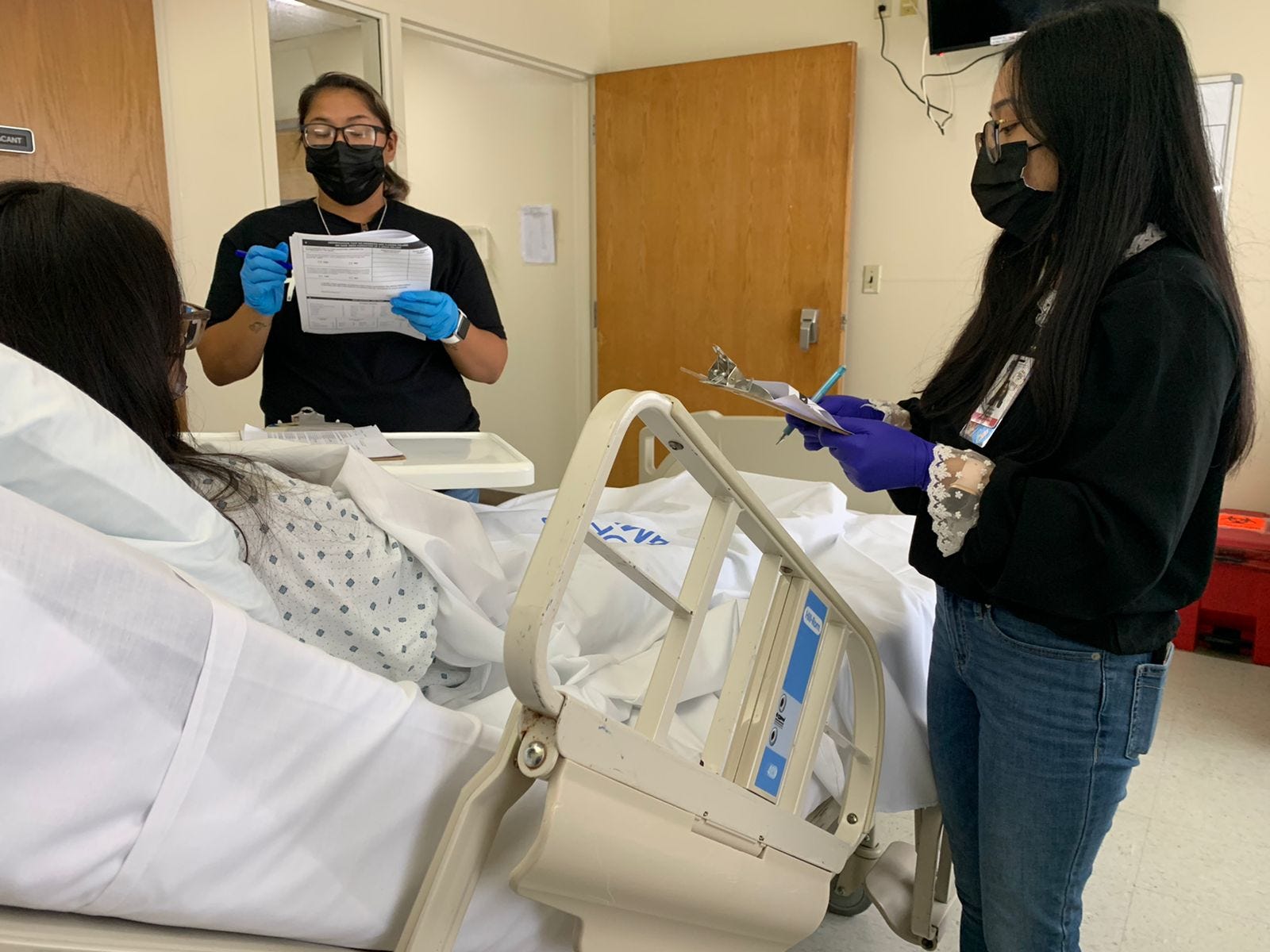A change in the way that Guam is allotted federal funding for Medicaid could have consequences for certain patients and providers, according to Teresita Gumataotao, program coordinator for the Medicaid program at the Department of Public Health and Social Services.
In fiscal 2020 and fiscal 2021, Guam saw an increase in Medicaid funds through an additional Public Health Emergency allotment of $129 million, Gumataotao said.
More: Record enrollment: 1 in 5 students register for summer school
More: Cigarette tax bill, emergency power limit override fail
The island is required to match a certain percentage of federal money provided through Medicaid with local funds, but the emergency funds had a higher than normal match rate of 83% federal to 17% local.
According to Gumataotao, these temporary increases have helped the program to provide payouts for services to Medicaid patients quicker, and to expand the program to cover individuals who are at slightly higher income levels.
But the additional funding and adjusted match rates are set to expire in September of this year, Gumataotao said, unless the U.S. Congress extends it. She and others have referred to the reset as the "Medicaid cliff."

Unlike the states, where Medicaid funding is open-ended, Guam normally has its funding capped at about $20 million annually. The states also have match rates for Medicaid based on income per capita, with a match ratio of 55% federal to 45% local.
The 2010 census has Guam's per capita income at $16,549. Mississippi, the state with the highest federal Medicaid match percentage of 84.5%, has a higher per capita income than the island at $21,036.
About 21% of Guam's residents are enrolled in Medicaid, putting it's coverage levels in the upper half of states in the U.S.
CNMI Del. Gregorio Kilili Sablan and Guam Del. Mike San Nicolas introduced the Insular Area Medicaid Parity Act in Congress to remove the cap on funding. President Joe Biden's budget request would eliminate Medicaid funding caps for the territories.
Match rate key
During a public hearing on April 21, Theresa Arcangel, Public Health's chief human services administrator said increasing funds without adjusting federal match rates would not necessarily solve the problem. If Guam doesn't have the cash to match federal funds, it can't draw down the additional money, she said.
"Even if they gave us $130 million or $200 million, if there's no equivalent local match, that we won't be able to pay for those services," she said.
According to Gumataotao, Guam is mandated to continue to cover Medicaid patients, even if the annual budget for Medicaid runs out. This results in a delay in payments to health care providers, who may have to wait for payments until the next fiscal year.
"If we end up reverting back, that's where providers are going to get delayed payments. And when they get delayed payment, that's when we start losing providers," she said.
According to Gumataotao, the majority of health care providers accept Medicaid, but there are some limits to their services.
"The problem is that they kind of cap the amount they see per day, they may only allow certain numbers, like 10 per day. That's what causes challenges," she said.
Some clinics only provide specific types of services, which can result in a further delay of services to patients. Patients on Medicaid who need to see off-island specialists are also held back.
"We don't have (many) off-island providers," she said.
Many patients have to fly as far as California to receive treatment, she said.
With citizens under the Compact of Freely Associated states now eligible for Medicaid, Public Health is projecting that another 8,000 individuals will be covered by the program in 2021.
Impact on GMH
Guam Memorial Hospital may also see the impact of a reset to old Medicaid funding levels. GMH officials have made steps toward stabilizing the hospital's finances by improving collections on medical billing, but during the agency's May 20 budget hearing GMH Administrator Lilian Perez-Posadas said that a return to old match rates could "have a significant impact on our Medicaid reimbursements."
The hospital's budget request showed that during fiscal 2020, Medicaid accounted for $38.2 million, or 21% of the hospital's billing. Officials said one of the strides the hospital was making was assisting patients who had no insurance to apply for programs like Medicaid.
GMH public information officer Mai Habib said that the reset in match rates could result in a delay of payments for the hospital, but GMH was aggressively pursuing other funding sources. The hospital requested $12 million in American Rescue Plan funding, $10 million of which would make up for lost revenues.
You can reach reporter Joe Taitano II at jtaitano@guampdn.com.
This article originally appeared on Pacific Daily News: Medicaid reversion would hit Guam hard



(0) comments
Welcome to the discussion.
Log In
Keep it Clean. Please avoid obscene, vulgar, lewd, racist or sexually-oriented language.
PLEASE TURN OFF YOUR CAPS LOCK.
Don't Threaten. Threats of harming another person will not be tolerated.
Be Truthful. Don't knowingly lie about anyone or anything.
Be Nice. No racism, sexism or any sort of -ism that is degrading to another person.
Be Proactive. Use the 'Report' link on each comment to let us know of abusive posts.
Share with Us. We'd love to hear eyewitness accounts, the history behind an article.